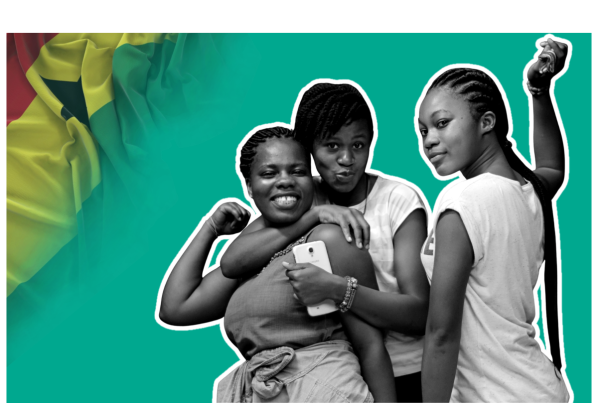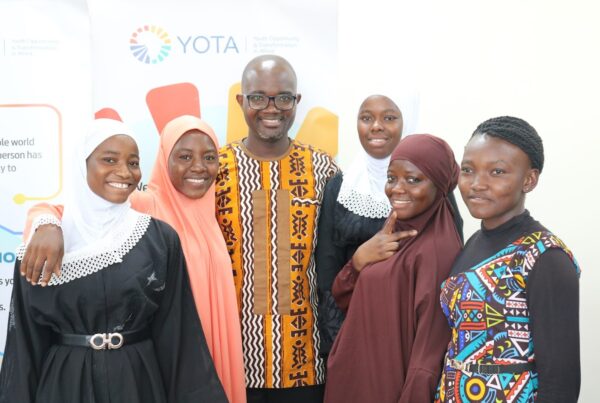
By Emmanuel Edudzie
Executive Director, YOTA
Ghana’s youth, the largest voting demographic, demand thoughtful, inclusive policies that prioritise their aspirations for a better future. As the ruling New Patriotic Party (NPP) seeks re-election, its manifesto offers a window into its vision for the country. This analysis evaluates the NPP’s manifesto through the lens of youth responsiveness, assessing its policies’ potential to address the pressing needs of young people in employment, education, entrepreneurship, technology, governance, and social inclusion.
- Jobs and Economic Empowerment
The manifesto emphasises job creation, with claims of having created over 2.3 million jobs during the NPP’s tenure. Proposed initiatives include training 1,000,000 youth in digital skills and establishing an SME Bank to support businesses employing over 80% of Ghanaians. These policies align with the youth’s demand for job opportunities in a challenging economic climate.
However, the promise of jobs must be matched by evidence of implementation mechanisms. The manifesto lacks specific timelines, budgets, and accountability frameworks to ensure job creation targets are met. Furthermore, while the commitment to industrialisation and agribusiness is commendable, young people’s access to these opportunities, especially in rural areas, requires more explicit detailing.
- Education and Skills Development
Education remains a cornerstone for youth empowerment. The NPP’s achievements, such as the Free SHS/TVET policy, have transformed secondary education access, boasting an 83% increase in enrolment. The manifesto pledges to expand educational infrastructure, recruit more teachers, and introduce a Free Tertiary Education Scholarship for Persons with Disabilities (PWDs).
Additionally, the manifesto focuses on STEM education, directing scholarships toward technical fields and proposing a centralised university application system. These policies reflect the global demand for a digitally skilled workforce. However, the manifesto could better address issues of quality in public education, the adequacy of teaching resources, and inclusivity for marginalised groups, such as young women and rural students.
- Digital Economy and Technology
Recognising the Fourth Industrial Revolution, the NPP aims to position Ghana as a digital hub. Policies include:
- Training 1,000,000 youth in digital skills,
- Establishing a National Robotics, Engineering, and AI Lab,
- Creating a Fintech Fund to support tech startups; and
- Introducing a Digital Residency programme for businesses and tech workers.
These proposals are forward-thinking and cater to a tech-savvy youth demographic. However, for Ghana’s youth to fully leverage these opportunities, the manifesto should outline clear strategies for affordable internet access and digital inclusion in underserved areas.
- Youth in Governance and Leadership
The manifesto underscores the need for values-based leadership and proposes electing Metropolitan, Municipal, and District Chief Executives (MMDCEs). While this fosters decentralisation and accountability, there is minimal emphasis on directly involving youth in decision-making processes.
Programmes like the National Entrepreneurship and Innovation Programme (NEIP), which provides training and funding for youth-led enterprises, are steps in the right direction. However, the manifesto lacks innovative proposals to enhance youth participation in governance and civic activities.
- Social Inclusion and Gender Equity
The manifesto includes measures to promote gender parity, such as expanding scholarships for women and establishing daycare centres to support working mothers. The Affirmative Action Act’s implementation promises to empower young women in leadership roles.
For social inclusion, the manifesto proposes quotas for recruiting Persons with Disabilities into the public sector and scholarships for PWDs. These commitments resonate with Ghana’s youthful electorate, which values equality and inclusivity. Yet, more robust monitoring and reporting mechanisms are needed to ensure these policies translate into meaningful impact.
- Sports, Creative Arts, and Tourism
Youth engagement through sports and the creative arts receives notable attention. The manifesto plans to revive Colts football, improve sports infrastructure, and establish a streaming platform for creative content. These policies cater to the aspirations of young creatives and athletes, offering avenues for economic and cultural development.
However, the manifesto’s success depends on ensuring these programmes are accessible nationwide, not just concentrated in urban centres.
- Environmental Sustainability
The manifesto identifies reforestation and sustainable mining as priorities, engaging youth through job creation in green industries. This is a step toward involving young people in addressing climate change and environmental degradation. The success of such initiatives, however, requires a commitment to education and capacity building among the youth.
Critical Reflections
While the NPP manifesto presents ambitious policies to empower the youth, there are gaps in clarity, implementation frameworks, and equitable access to resources. Key questions remain:
- Implementation and Monitoring: How will the NPP ensure that promised jobs and digital skills programmes reach Ghana’s diverse youth population?
- Inclusion and Equity: Will rural, marginalised, and underserved communities have the same access to these opportunities as urban youth?
- Sustainability: Are these policies designed for long-term impact, or are they short-term fixes aimed at garnering electoral support?
Conclusion
The NPP’s manifesto demonstrates a significant focus on youth-centred policies, reflecting an understanding of the demographic’s importance in the upcoming elections. However, Ghana’s youth must scrutinise these promises, demand clarity on implementation, and hold the government accountable for delivering results.
This election provides an opportunity for the youth to shape Ghana’s future by voting not based on party colours but on policies that genuinely address their needs. The NPP must convince young voters that their manifesto is not just a collection of promises but a blueprint for transformative change.







